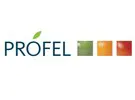 Since the beginning of the year, there has been a severe drought affecting several European fruit and vegetable growing regions due to persistent lack of precipitation, combined with heat waves as early as May. Unfortunately, positive trends are not in sight.
Since the beginning of the year, there has been a severe drought affecting several European fruit and vegetable growing regions due to persistent lack of precipitation, combined with heat waves as early as May. Unfortunately, positive trends are not in sight.
The fact is: the drought is currently leading to crop losses up to 50% depending on the crop and production zone.
The above-average drought in France, Hungary, Italy and Spain is extremely worrying. There, river water levels have already reached a record low. Yield losses will also seriously affect Belgium, the Netherlands, Portugal and Romania, but to some extent also Germany, Poland, Slovenia and Croatia.
For some crops such as carrots, spinach or peas, drip irrigation is not possible, or spray irrigation would burn the leaves. Where irrigation was theoretically possible, water use restrictions or even irrigation bans have often been put in place. For those growers who have been in a capacity to irrigate more to limit yield loss, the cost of irrigation heavily increased.
For summer fruit there were heavy yield losses for peaches, apricots and (water) melons and in 2021 the apricot and peach harvest was sparse (European pear and apple crop forecasts are average at the moment).
Majority of autumn crops also affected
If rainfall continues to be low in autumn, the vast majority of autumn crops on which the processing industry is also dependent, will be affected. For late cabbage varieties, crop yields will be reduced.
Negative impact on production costs
Required raw material is only available in reduced and irregular quantities and factories are not working at full capacity, leading to increased production costs per ton for 2022.
For the next crop in 2023, processors are worried: after such a difficult year for farmers, will processors be able to contract sufficient hectares, and at which cost? The sector is doing the utmost to meet the demand as much as possible. PROFEL will continue to monitor the situation closely and will provide an update as soon as more details on the impact of climate change are known.
For more information:
PROFEL Secretariat
Tel: +32 2 500 87 59
Email: profel@profel-europe.eu
www.profel-europe.eu
